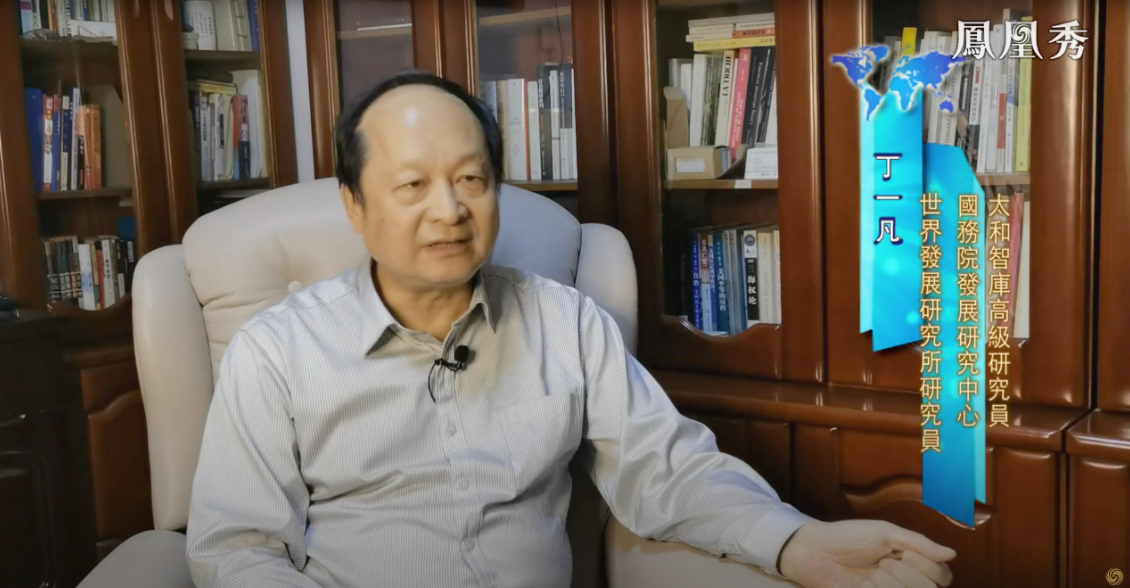Mr. Ding Yifan, senior fellow of the Taihe Institute, elaborated on the Regional Comprehensive Economic Partnership (RCEP), the world’s largest free trade zone agreement, at Global Updates on Phoenix Chinese Channel.
The main points of view are as follows:

The East Asia region has one of the best industrial chain combinations found in the international community given the industrial manufacturing products in this region currently account for approximately 50% to 60% of the global share, which is far ahead of that of other regions of the world. In this context, this myriad type of industrial chain combinations will make the manufacturing advantages of the East Asia region become more obvious compared to that of Europe and North America which in turn will attract companies in other regions to invest here heavily.
So, whether it is for European or American companies, even though their governments have adopted measures to encourage them to invest domestically, all these measures collectively cannot overcome the power of the market itself. Therefore, once the East Asian region has cemented this kind of market attraction, it will be nearly impossible for those foreign companies to leave such an attractive marketplace.
How can the RCEP and CPTPP “get along” in the future?
The signing of the RCEP has also created considerable pressure for U.S. President-elect Joseph Biden, forcing the new U.S. Administration to deepen U.S. trade participation in the Asia-Pacific region, as the world will no longer wait for the United States.
Once Mr. Biden takes office, the United States may return to TPP.
Mr. Biden believes that although the Trans-Pacific Partnership is not a perfect agreement, it provides a firm foundation for countries to unite and “deal” with China. However, under the stringent measures of "America First" and unilateralism tendency, Mr. Biden may very well be facing fierce domestic political resistance. Even some people from Mr. Biden’s own Democratic Party want to protect America’s manufacturing industry, believing that a trade agreement will only do damage to American jobs.
A few days ago, Mr. Biden held an online meeting with his top economic advisers to discuss U.S. economic issues and he said he would announce these detailed trade plans on January 21 of next year, the day after he officially takes office. However, Mr. Biden did not make a statement on whether to lead the United States in joining the RCEP after taking the U.S. Presidency.
Mr. Biden pointed out that the U.S. Economy makes up 25% of the entire global economic share and that the United States needs to unite with its allies that collectively account for 25% (or more) of the world share to “respond” to China’s ever-growing influence.
Mr. Biden also emphasized that in the future, he will not adopt a "punitive" trade policy, but will commit to enhancing the overall competitiveness of American workers, while ensuring that economic and trade development will not affect workers' rights and their working environment.
—————————————————————
ON TIMES WE FOCUS.
Should you have any questions, please contact us at public@taiheglobal.org
